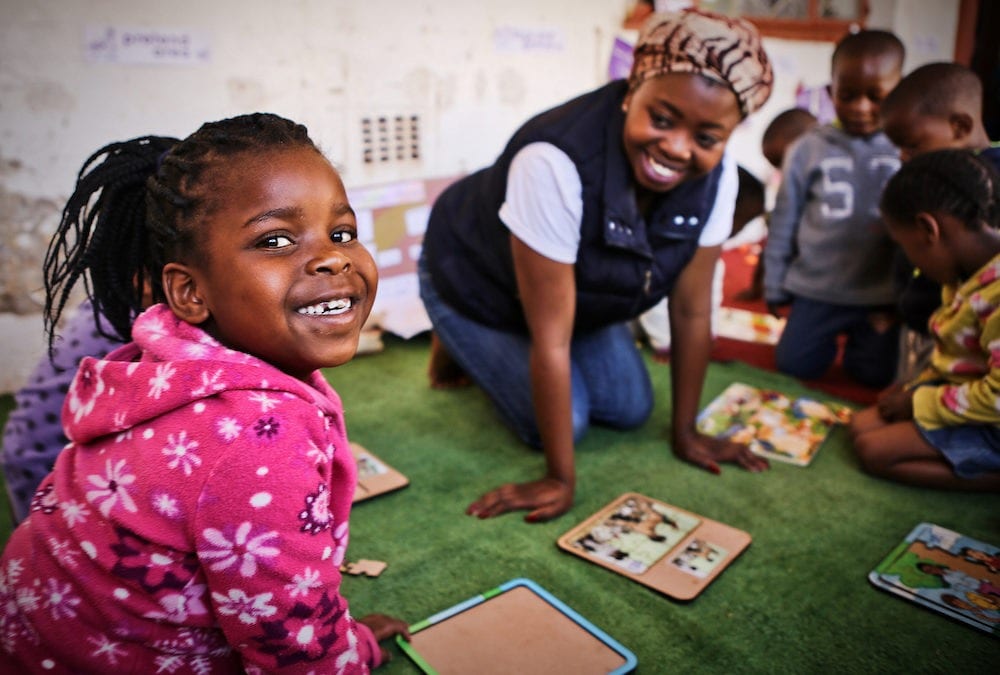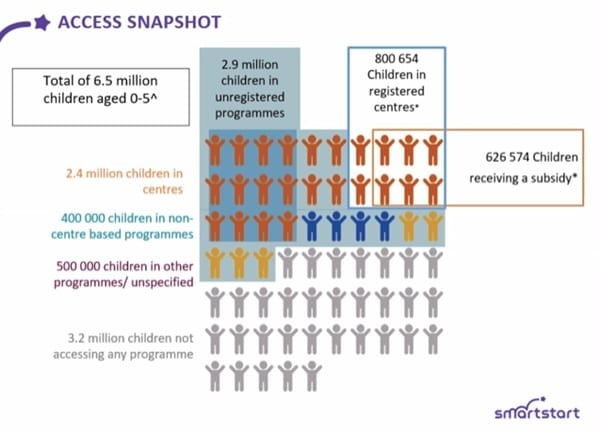DGMT SmartStart

Location
South Africa
Sector
Education
Type of Investment
Grant
Project Stage
Test & Transition
Length of Investment
2020 - 2024
Investment Overview
ECD Connect is a digital platform, developed by DGMT trust, to support small early childhood development practitioners to manage their operations in order to facilitate quality service provision at scale. It was initially developed for SmartStart is a social franchise which provides early childhood care and education services for low-income households in South Africa.
The Development Challenge
The effects of poor development in early childhood have life-long consequences, setting children on a lower trajectory and adversely impacting a country’s social and economic development. In South Africa, there has been a steady increase in the number of children aged three to five enrolled in group learning programmes, but UNICEF estimates that less than half of those attending participate in programmes of sufficient quality to derive the expected benefits from early childhood education. Furthermore, it was estimated that more than 1 million children, primarily those from the poorest backgrounds, did not have access to any form of group learning programme.
The Innovation
Established in 2015, SmartStart is a non-commercial social franchise which aims to expand access to quality early learning programmes for children in South Africa. It recognises that the scale of the challenge requires systems-level interventions which can close the provisioning gap. Its social franchise model offers a scalable solution. It recruits and trains practitioners who provide playgroups based on learning through play and enables them to access government subsidies. At the time of GIF investment, it had reached roughly 35,000 children a year through 3,500 practitioners in all nine of South Africa’s provinces, and had ambitious plans to reach 1,000,000 children annually by 2030.
Our Investment
GIF awarded a $1.46m grant to DG Murray Trust and SmartStart in 2020. The objective of the grant is to design and build a mobile enabled ECD practitioner management and support platform. This platform enables ECD practitioners to plan their lessons, access teaching materials, monitor child development, share information with parents, interact with coaches and peers, and manage their franchise finances. Further, the platform would enable SmartStart to better manage a growing network of franchisees and ensure quality service provision while scaling up. GIF funding will enable DG Murray Trust to embark on a user driven process to build the solution, support the adoption of the platform within SmartStart, and further develop the solution to be used by at least one other ECD programme. The long run vision of success is that SmartStart and other ECD practitioners are able to increase access to quality early childhood development programmes for the poorest children in South Africa.
Progress to Date
DGMT completed the build of the ECD Connect platform by the end of 2023. In 2024 it was embedded with SmartStart, which has grown its network to provide services to 100,000 children, and GrowGreat, a community health worker network in South Africa. In May 2024 ECD Connect was awarded the Sentech Africa Tech Week Start-Up Award. ECD Connect continues to onboard partners working to scale early childhood programmes, and has open-sourced its solution for partners to use and adapt to suit their needs.
SmartStart in numbers
children have attended SmartStart programmes between 2015 and 2023
GIF grant
